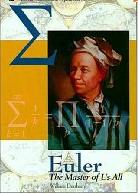What to do when a teenager gets turned off mathematics?
Posted by: Gary Ernest Davis on: January 2, 2010
Especially one who likes it, but who is turned off by repetitive drill …
Jeanne Bernish has a 14 year old son who is  very good at math ( accelerated) but just doesn’t like it. He is into gaming, and is tired of drills. She feels he will probably be so turned off by mathematics in school that he probably won’t pursue it in college…. and that makes her sad.
Some people might ask where is the problem here? This boy has found other interests, has decided mathematics is not to his liking, and will pursue other avenues. Is that really a problem?
What I understand Jeanne’s issue to be is that she is sad her son is being turned off a subject he is good at as a result of the way it is taught. No romance, no excitement, no challenge, no adventure, no fun! Just repetitive, boring drill.
A young man I know is currently a freshman at the University of Connecticut. He went there, as a Massachusetts resident, because he is good at mathematics, likes it, and could see a potential career as an actuary. U Conn has a very strong mathematics program. Last semester he was bored with mathematics, didn’t like the deadly dullness of how it was being taught, and wanted something more interesting in his life. His other love is sports. Luckily his mother and her partner put together a plan to get him to  look into sports broadcasting with MSNBC. He is now planning to major in statistics and journalism, and is thrilled to know that he can pursue a career in two areas he loves – math and sports.
So what should Jeanne do to sustain her son’s interest in mathematics so that at college he will, at least, have the opportunity to continue with mathematics if he wants?
Ms. Walsh tweeted “forget math as math. just start playing online offline or ds games for whatever skill you want them to know” and “coordinate geometry = battleship; ordering numbers = war; any dice = addition ie candyland/monopoly/yahtzee”.
I think there’s a lot to be said for this tack, especially to forget math as math homework and chores and to focus, at least a little, on games.
My own son, who was very good at mathematics, loved computer games, of all sorts and we always encouraged him to play. Jeanne’s son is interested in gaming, but this probably involves games of a different level of sophistication than those Ms. Walsh mentions. Modern computer games use a high level of sophisticated mathematics – differential geometry, for example – that is pretty much out of the range of expertise or ability of a 14 year old.
Ira Socol mentioned the Special Ed blog post Real World Math which focuses, productively, on what I would call quantitative literacy. This, in my experience, is an excellent way to get kids involved in mathematical thinking in a way that empowers them to deal quantitatively with their everyday world. My own take on this is that mathematical experiences ought to be playful, fun, engaging, and empowering.
Often, as Jeanne is experiencing, this is not how mathematics is presented in school. “No Child Left Behind” is not the cause of that, but it doesn’t help, either, with the heavy focus on high stakes tests. The fact is – sad to say – many teachers of mathematics are not trained in mathematics, and have no love of the subject. Hard for them, therefore, to present mathematics as fun and challenging.
On that note,  I think it is worth looking at the computational exercises of Cleve Moler: Experiments with MATLAB. Cleve started MathWorks which markets MATLAB, a professional level computational engine. A student version is available at a low price. Cleve’s book is an introduction to computational aspects of mathematics. This will not excite every mathematics student, but it won’t disappoint any of them. It’s worth taking a look at as a way of stimulating interest in real mathematics.
The way I see it is that Jeanne’s story is all too common. Kids turned off mathematics by deadly dull repetitive drill and nothing else. Â It seems to be a systemic problem involving teachers, principals, superintendents, school boards, publishers, policy makers and politicians.
Jeanne and others like her need to stand up and  show this system how a better way is possible. We owe it to our kids not to dehumanize them with boring drill, but to enliven and enrich their spirit and minds through the playful study of mathematics.
This is what the Republic of Mathematics stands for.
Postscripts
 (1) After thinking about Jeanne’s issue overnight, it seems to me that it might be worth her getting William  Dunham’s book Euler: The Master of Us All.
(1) After thinking about Jeanne’s issue overnight, it seems to me that it might be worth her getting William  Dunham’s book Euler: The Master of Us All.
This book tells a series of stories, relating how the master mathematician Euler made significant progress on a number of mathematical problems.
Euler writes in a way that exposes his thinking. It’s a great book, approachable in chunks by an intelligent kid.
x
x
(2) The following is an excerpt from the Kenya Sunday Nation:
Maths is easy, just change that attitude
By John Maken, Posted Friday, January 1, 2010
From the time she started primary school Fiona Musanga liked counting and numbers and solving problems. But as she moved towards Standard Seven, she found her interest slipping and boredom creeping in. She was on the verge of joining the legions of girls who hate maths.
But then she found herself in Mr Abdul’s maths class at Nairoi’s Lavington primary school and there was no turning back. “He made it really interesting and even fun,†said the 16-year-old who is now in Grade 10 at Aga Khan High School where she continues to be fascinated by the subject and does very well.
“I love numbers. Working out and solving problems is fun,†said the student, who actually looks forward to doing maths homework in the evening. “Most of my girlfriends don’t like mathematics. Even boys say it is a difficult subject,†she said, adding that the way mathematics is presented and taught in schools often puts students off.
4 Responses to "What to do when a teenager gets turned off mathematics?"
I am officially blown away… and it takes a lot to move my mountain. Thanks for the great post and helpful tips. I believe I am blushing. Who knew my request for ideas on Twitter this morning would turn into such a great blog post?
I do not wish to criticize his current math instruction – I am sure it is all necessary skill building and etc. – but the joy of math is sucked out in the process and, not being mathematically-minded myself, I feel powerless to inspire him. I have signed him up for math enrichment programs – which he has absolutely loved – learning math tricks and etc. – but programs like that are few and limited to younger students. We have tried on-line learning through talent search but so far that has simply been using the computer to check in with the teacher and self-study with a used textbook. I like the idea of Quantitative literacy – using real world math problems like understanding the mathematical relationship of computer memory or baseball stats to create a more authentic experience (and Ira’s analogy of using Stonehenge to check the date made me laugh out loud).
Funny, I read something not too long ago about a similar complaint in science – that we teach all the dull stuff up front and the really cool and interesting stuff later when many students have already given up. Anyway – thanks for the post!
This is yet another reason why parents need to step up and help in their children’s education. We as parents need to have more options. We need more ways to help our children succeed in life. When we see something is not working we need to be able to make a change and find something that does work. Virtual schooling helps my children when the normal brick and mortar school failed. There are several online games that are attached to daily lessons to keep my children active and learning. I feel these games have enlightened both me and my children. My only hope is that other parents will have the opportunity or choice to Virtual public school their children and aid in their children’s studies.
Thank you for this informative post. Our kids (both pre-teen) already disliked math at the age of 8. Their comments were: “I am just no good at it and it is so boring”, even though they understood the concepts quite well when we went through with them.
In my experience worksheets are painful and turn kids right off. Interactive, fun math games on the computer are way superior.
We need math in our everyday lives, so why not create games where you need to use math at every turn? Even better when the game celebrates your accomplishments with you – effectively proving to your child that actually they ARE good at math!
This is actually exactly why we created the MathsRider software.
But no matter what cool software or other tools we give our children, the most important thing we as parents can do is to also give our own attention. Stop, listen, acknowledge (and resist just giving solutions). Software sure helps, but no software or tool can ever replace a supportive parent.

January 2, 2010 at 2:23 pm
Interesting article, thanks!